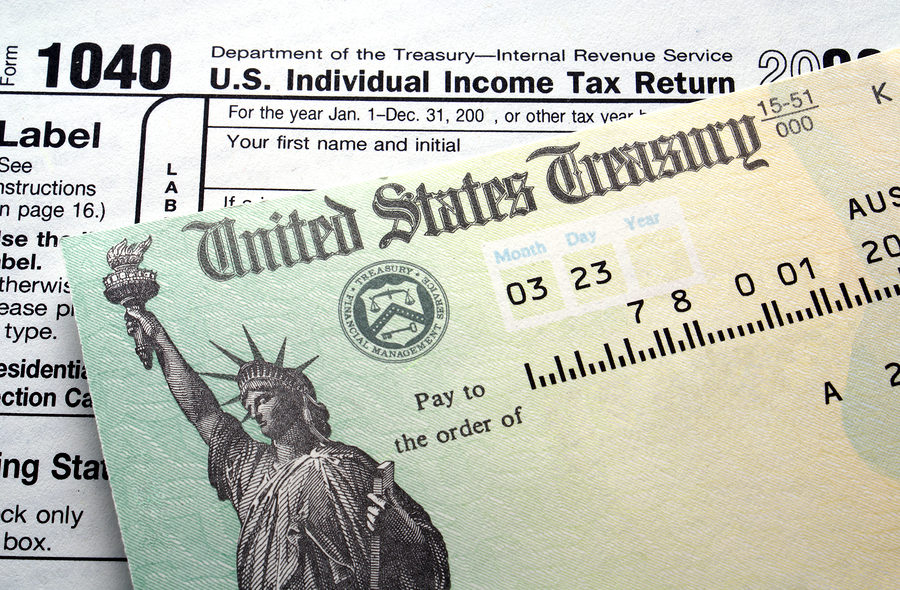If you are considering filing for bankruptcy, timing can be everything. The last thing you want to do is file for bankruptcy, receive a large tax refund and have to hand it over to the bankruptcy trustee. If you are anticipating a refund, it is important to time your Chapter 7 bankruptcy filing just right.
In a Chapter 7 bankruptcy, all assets are considered to be part of the bankruptcy estate which is controlled by the bankruptcy trustee. If the asset is tied to what is known as an exemption, the asset can be protected. Otherwise, the asset can be liquidated and used to pay off the qualifying creditors. A tax refund is one of those assets that is not tied to a bankruptcy exemption, which means that this sum of money can be used by the trustee to pay back creditors before the remaining debt is liquidated.
Any unspent tax refund the year before bankruptcy will go to the bankruptcy estate because this money is considered to be unnecessarily paid to the IRS, just like cash in a bank account. If the refund is received during the year of Chapter 7 bankruptcy, the amount of tax refund that is based on the income earned before filing for bankruptcy will go to the bankruptcy estate. If the refund is based on income earned after the date of filing, the debtor can keep this money. Any refund received for income earned the year after bankruptcy is safe.
What this means is the timing of when you file bankruptcy is key. A bankruptcy attorney can discuss these options with you. If someone is anticipating filing, that person can adjust his or her withholding on paychecks to the minimal amount so that the debtor pays only the tax that is owed. He or she can also spend the refund on what are considered to be necessary expenses. These expenses can include mortgage payments, food, utilities, medical care, education or car payments. Necessary expenses do not include purchases for luxury items, repayment of a credit card or paying back a friend or family member.
It is possible to keep your tax refund as part of an exemption. In every bankruptcy case, each debtor is allowed to exempt a certain amount of property, depending on the state. It is possible that a tax refund can be included in this exemption. A bankruptcy attorney can discuss this possibility with you, addressing the pros and cons of utilizing this option.
Click here to read more on this story.
If you have any questions on this topic or are in financial crisis and considering filing for bankruptcy, contact an experienced Miami bankruptcy attorney who can advise you of all of your options. As an experienced CPA as well as a proven bankruptcy lawyer, Timothy Kingcade knows how to help clients take full advantage of the bankruptcy laws to protect their assets and get successful results. Since 1996 Kingcade Garcia McMaken has been helping people from all walks of life build a better tomorrow. Our attorneys’ help thousands of people every year take advantage of their rights under bankruptcy protection to restart, rebuild and recover. The day you hire our firm, we will contact your creditors to stop the harassment. You can also find useful consumer information on the Kingcade Garcia McMaken website at www.miamibankruptcy.com.


